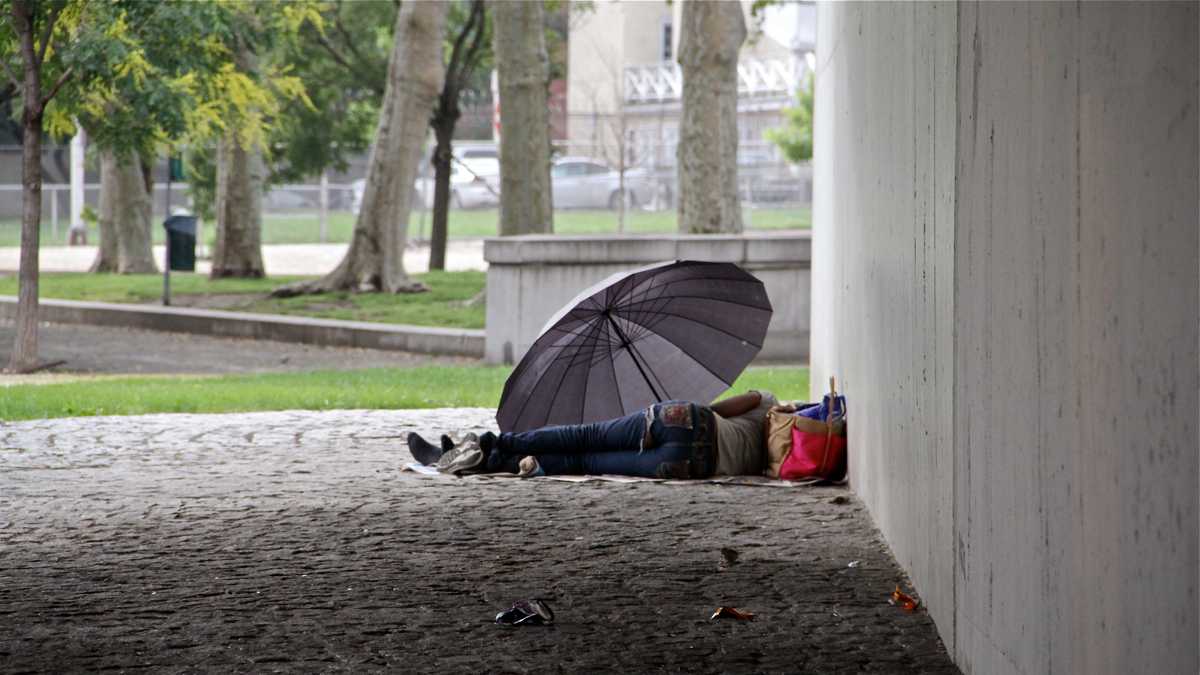Studies find those with HIV at higher risk of becoming homeless
Listen
(Emma Lee/WHYY, file)
When it comes to ensuring a good health outcome, stable housing is crucial for people living with AIDS or HIV. But recent reports commissioned by Philadelphia say those with HIV/AIDS are more likely to be homeless than others in the city.
Researchers estimated that almost 600 homeless people in Philadelphia are HIV positive.
For many years, a woman named Jeanette was one of them.
She found it hard to take her medicine because she didn’t want people she stayed with to know that she was HIV Positive. Jeanette was afraid of hearing this refrain: “You can’t stay here no more because you’ve got that. That hot stuff. Who wants to hear that?” she explained.
So she’d try to take her meds at five or six o’clock, but they made her sleepy. Max Ray-Riek, who volunteers with ACT UP Philadelphia, said staying on a schedule for meds is partly why stable housing is so important.
Stephen Metraux is a researcher and professor at the University of The Sciences. He completed one of the reports.
“There have been studies in city after city that say that stable housing is more predictive or as predictive as being on medication in determining your health outcomes will be,” he said,
Homelessness is the tip of the iceberg of a bigger problem for Metraux.
“There’s kind of a larger group that is either on the verge of becoming homeless or just not adequately housed, either doubling up with others, or in substandard housing, or paying way more rent than they can afford.”
One report recommends preserving HOPWA — or the Housing Opportunities for People With AIDS program. The ACT UP Philadelphia group fears the federal budget could cut funding for the program. Ray-Riek said that’s particularly worrisome because with less stable housing, transmission rates go up.
The City’s Division of Housing and Community Development agreed that keeping HOPWA funded is key. And it said the city is also exploring other ways to coordinate housing services and combine resources.
Jeanette eventually was able to get into affordable housing. But without an address, the letter notifying her of the good news went to a relative — and it took her some time to get it.
WHYY is your source for fact-based, in-depth journalism and information. As a nonprofit organization, we rely on financial support from readers like you. Please give today.

